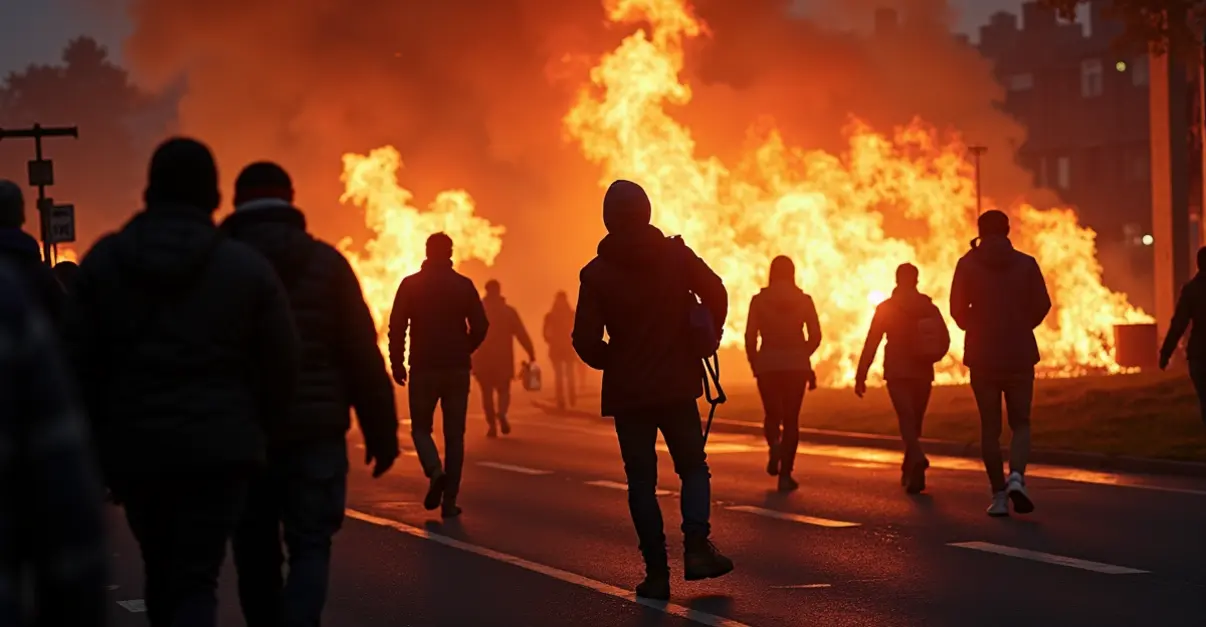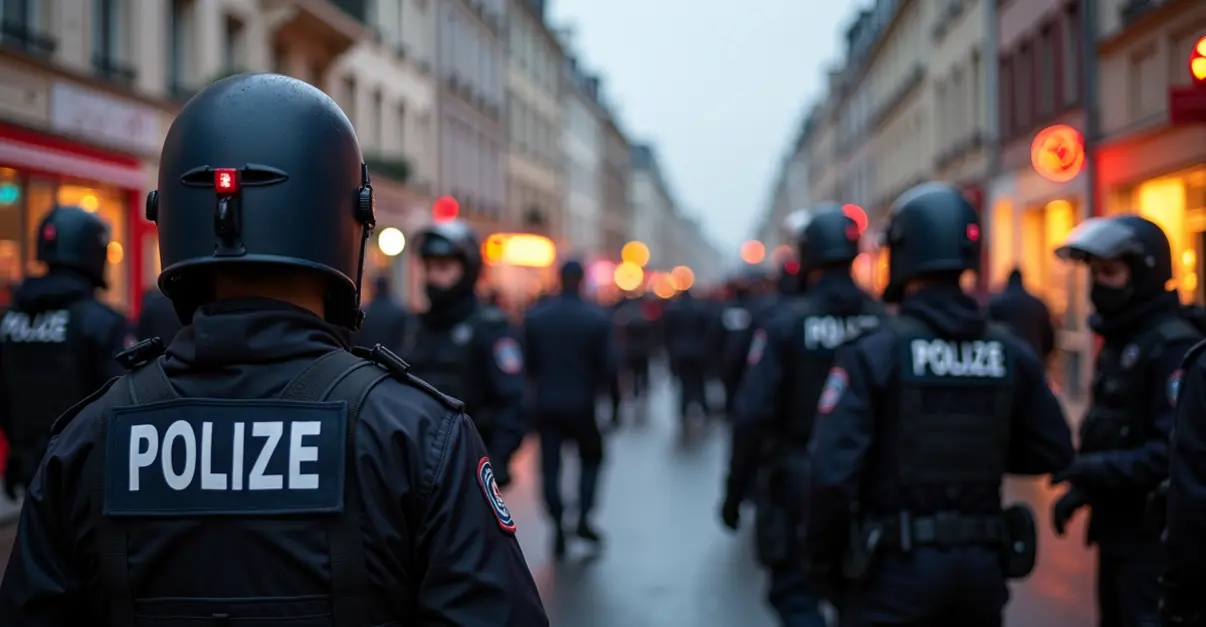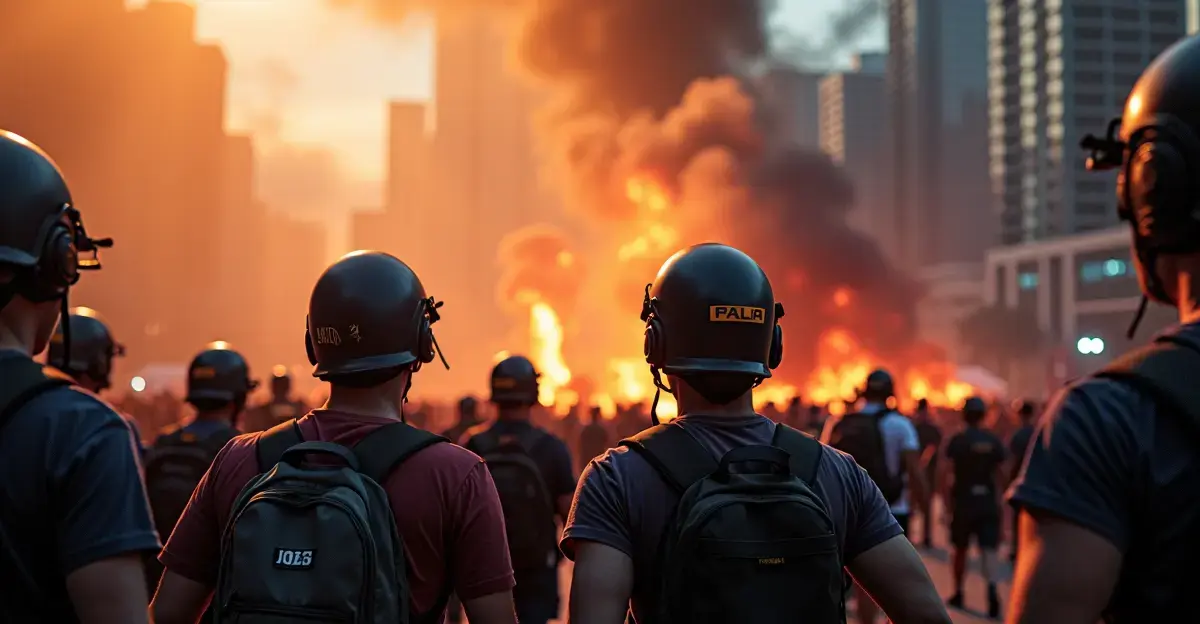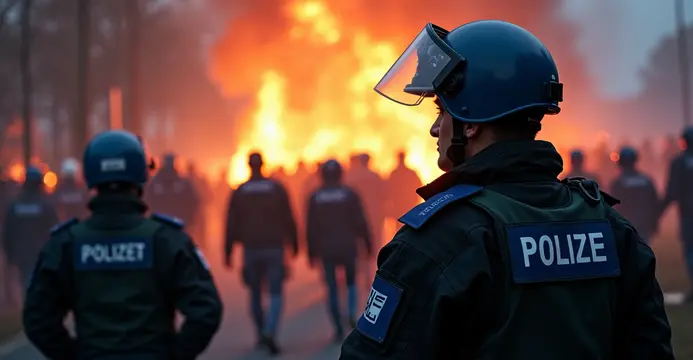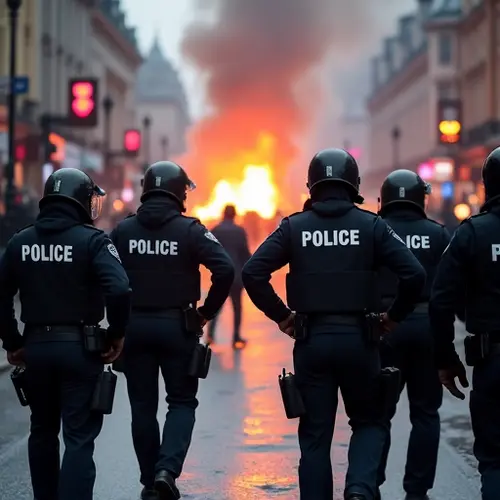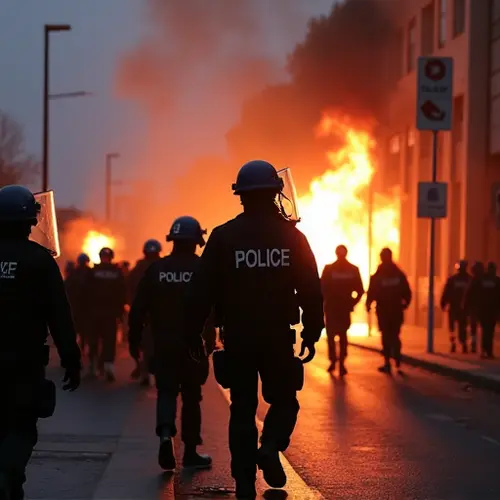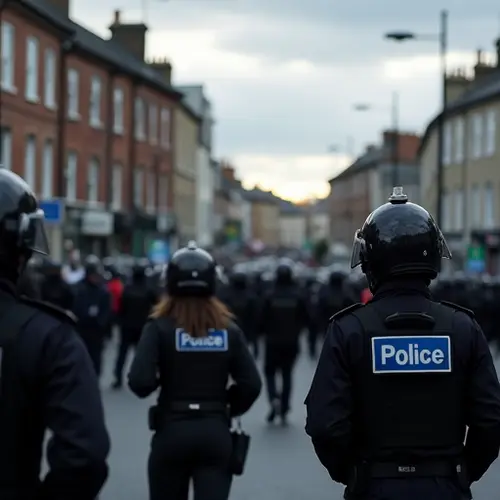Dublin Erupts in Violence as Anti-Immigration Protest Turns Deadly
Dublin witnessed violent clashes between protesters and police on Tuesday evening as an anti-immigration demonstration outside a Citywest Hotel asylum center escalated into full-scale riots. The protest, which drew between 500 and 2,000 participants according to varying estimates, saw demonstrators attacking police with stones, bottles, fireworks, and even pitchforks while setting a police vehicle ablaze and attempting to blind helicopter crews with laser pointers.
Police Response and Political Fallout
Irish police had anticipated the unrest, deploying approximately 300 officers including riot control units, a water cannon, and helicopter support. 'This was thuggery by a mob intent on violence,' stated Garda Commissioner Justin Kelly, who condemned the attacks on law enforcement. Six individuals were arrested for public order offenses, and one police officer sustained injuries during the confrontation.
The violence prompted strong condemnation from political leaders across Ireland. Prime Minister Micheál Martin described the events as 'extremely serious and very, very grave,' while Justice Minister Jim O'Callaghan warned against 'weaponising a crime to sow dissent.' The protest was reportedly organized by what police described as 'hateful and violent groups' using social media to encourage participation.
Context of Rising Tensions
The immediate trigger for the protest was the arrest of a 26-year-old man suspected of sexually assaulting a 10-year-old girl near the asylum center. According to opposition party leader in the Irish parliament, the suspect was an asylum seeker against whom a deportation order had been issued in March, though authorities have not confirmed this claim.
This incident follows a pattern of growing anti-immigration sentiment in Ireland, a country traditionally known for its welcoming approach to migrants. Similar riots occurred in November 2023 after a man with an Algerian background seriously injured a woman and three children with a knife, though that perpetrator was an Irish citizen.
Ireland's transformation from an emigration nation to one receiving significant numbers of asylum seekers has created social tensions. While no major anti-immigration parties sit in parliament, protests and online demonization of asylum seekers have increased substantially in recent years.
Broader Implications
The Dublin riots reflect wider European trends where anti-immigration sentiment has fueled political movements and public unrest. Similar incidents have occurred across the continent as countries grapple with integration challenges and public concerns about immigration policies.
Local residents near the Citywest Hotel expressed mixed reactions, with some distancing themselves from the violent protesters while others voiced concerns about the accommodation of asylum seekers in their community. The incident has reignited debates about Ireland's immigration policies and the balance between humanitarian obligations and public safety concerns.
As authorities continue their investigation and pursue additional arrests, the Dublin riots serve as a stark reminder of the volatile nature of immigration debates in contemporary Europe and the challenges facing governments in maintaining social cohesion while addressing legitimate public concerns.

 Nederlands
Nederlands
 English
English
 Deutsch
Deutsch
 Français
Français
 Español
Español
 Português
Português
